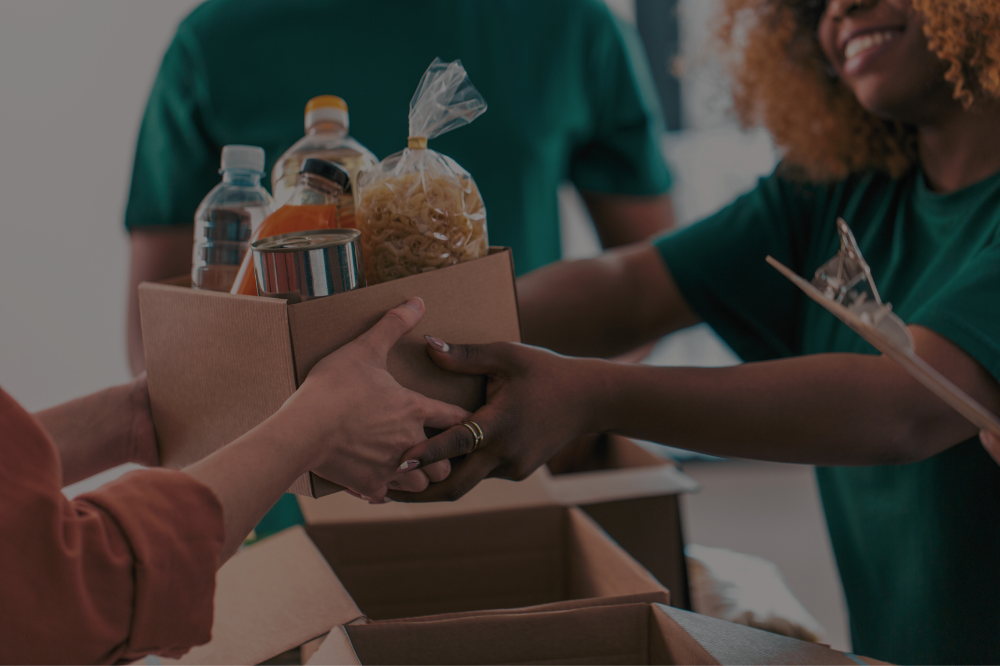Get to know how Social Relief Of Distress Grant works in South Africa and find out if you qualify for the social benefit!
In South Africa, when citizens face economic hardships that make it difficult to meet even their most basic needs, the government offers the Social Relief of Distress (SRD) program, designed to provide temporary assistance to vulnerable individuals and families.
The program has become especially vital in the wake of ongoing challenges such as unemployment and poverty. So, if you are facing a financial emergency, find out what the eligibility criteria is and how to apply in oder to get the help you need to navigate tough times. Also, if you want to check out more financial tips on our website, you can click on this link!
What Is Social Relief of Distress?
The Social Relief of Distress (SRD) program is a temporary form of financial or material support, offering emergency assistance to those who are unable to meet their basic living expenses due to unforeseen circumstances. The SRD Grant value can take the form of food vouchers, cash payments, or as food parcels.
It was particularly popularized during the COVID-19 pandemic when the South African government introduced a special COVID-19 SRD grant aimed at assisting unemployed individuals who were not receiving any other form of social grant. Although it was initially introduced as a temporary measure, it has since been extended multiple times, with many advocating for it to be made a permanent feature of the social welfare system.
The SRD program is administered by the South African Social Security Agency (SASSA), which is responsible for managing various grants and relief programs aimed at assisting vulnerable populations in South Africa.
How Does Social Relief of Distress Work in South Africa?
To apply for SRD, eligible applicants must submit an application to SASSA. This can be done online through the official SRD website or at local SASSA offices. Once the application is submitted, SASSA conducts a verification process to determine whether the applicant meets the eligibility criteria.
If approved, recipients are typically provided with short-term assistance that lasts for a specified period, usually three to six months. In some cases, the SRD grant may be extended if the individual’s circumstances have not improved during the initial support period. The SRD can be distributed in various forms depending on the situation and the recipient’s needs, such as:
- Cash Payments: recipients may receive direct financial assistance through bank transfers or mobile money;
- Food Vouchers: these vouchers are provided to purchase essential groceries;
- In-Kind Support: this can take the form of food parcels or other essential items.
How Much Do You Get From It?
The value is periodically adjusted to account for economic changes and inflation, so it remains a viable form of financial support for struggling families. As of April 2024, the monthly amount of the SRD Grant has become R370.
Who Qualifies for Social Relief of Distress?
Once its goal is to provide assistance for those who are unable to meet their basic needs, you can apply for it if you find yourself in any of these situations:
- You need help while you wait for your children’s grants to be processed;
- A crisis or disaster has occurred (e.g. your house has burnt down);
- You do not qualify for a grant, and you are in a desperate situation;
- You are unable to work for a period of less than six month because you are medically unfit;
- You are unable to get maintenance from the other parent of your child or children;
- The breadwinner in the family has died;
- The breadwinner has been sent to prison for a short time (less than six months);
- You have been affected by a disaster, but the area or community in which you live has not been declared a disaster area.
How to Apply
First, the applicant needs to visit their nearest SASSA office or access https://srd.sassa.gov.za/. Applicants will fill out an application form and submit the necessary documents to SASSA staff. You’ll need to take the following required documents with you:
- Your 13 digit-bar-coded identity document (ID);
- Child’s birth certificate;
- If your identity document and/or a birth certificate are not available:
- an affidavit commissioned by a Justice of the Peace. The affidavit must contain a clause which indicates that provision of incorrect or inaccurate information will result in prosecution in terms of Section 21 of the Social Assistance Act, 2004;
- a sworn statement by a reputable person who knows the applicant and the child. This may be from a councillor, traditional leader, social worker or minister of religion;
- proof that an application for a birth certificate or identity document has been lodged with the Department of Home Affairs;
- where applicable, a temporary identity document issued by the Department of Home Affairs;
- a baptismal certificate;
- a road to health clinic card;
- a school report.
If you do not have an identity document and birth certificates, an affidavit from your local police station, chief, councillor or religious leader may be enough proof. You’ll also need to proof that:
- Have applied for a grant;
- Have had an emergency (e.g. provide a police report that your house burnt down);
- Have tried to get maintenance;
- Have no other support;
- Are married, divorced, or single;
- Have no income;
- Have a short-term medical disability.
After you complete the application form, it will be processed immediately. The SASSA will assess for credibility and your genuine need for the service. Even if you do not have all the documents, you will get your first month’s food parcel, voucher or cash. However, remember to take all the documents to the officer before the second month’s payment is due. If you do not, you may not get it your second and third month.

